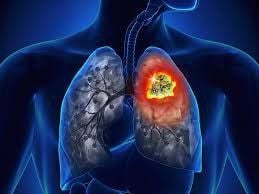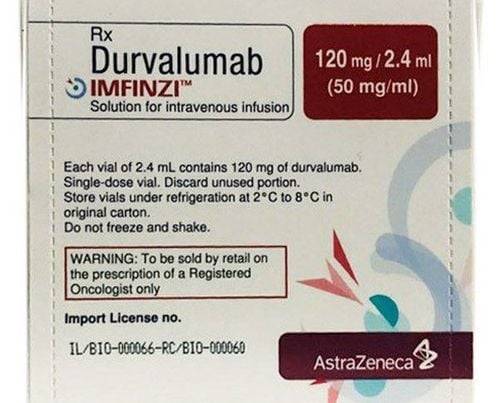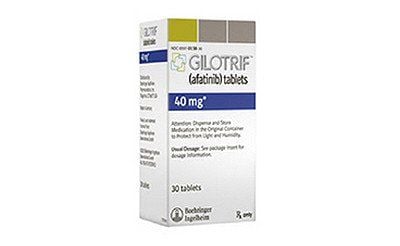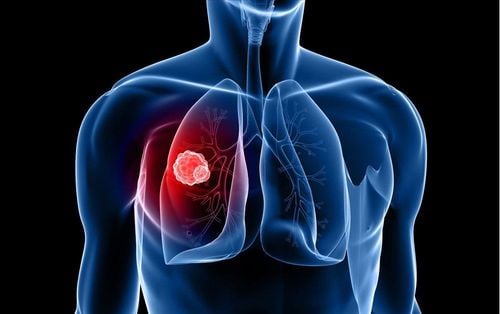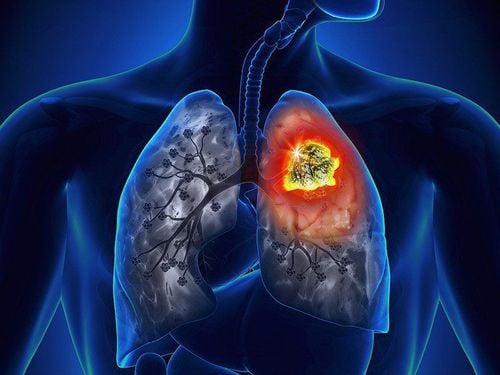This is an automatically translated article.
The article is expertly consulted by Dr. Nong Ngoc Son - Chemotherapy and palliative treatment - Oncology Center - Vinmec Central Park International General Hospital. The doctor has many years of experience directly treating cancer patients, especially in the field of chemotherapy, metastatic late stage cancers, and end-of-life patients.Lung cancer is cancer that develops in the airways or lung parenchyma. The main role of the lungs is to exchange gases, bring oxygen into the body and expel carbon dioxide out. In addition, the lungs also have the function of metabolizing some substances, filtering out some toxins in the blood.
Lung cancer is a disease with many potential risks, but it is not easy to recognize in the early stages. Symptoms often manifest clearly in the late stages, so treatment is very difficult, even when the disease is detected, the patient's life is only counted in days. Understanding the signs of lung cancer helps you diagnose the disease in time, thereby having an appropriate treatment plan.
1. Did you know the signs of lung cancer?
Lung cancer can happen to anyone, so be aware if you or a loved one has the following signs:Dry cough for two weeks or more: Cough is the most suggestive symptom but is often skip. A persistent cough that doesn't go away, dry cough, cough with sputum, even coughing up blood (small amount, sputum with little blood) can be a sign of lung cancer. Shortness of breath, shortness of breath, wheezing: Shortness of breath may be due to bronchial obstruction, breathing sounds may be wheezing, may be due to large bronchial obstruction, pleural effusion. There are some cases of obstruction causing fluid stagnation in the alveoli, leading to pneumonia, lung abscess, leading to fever, purulent sputum, ... Pneumonia, lung abscess: Infectious syndromes Respiratory symptoms such as pneumonia, lung abscess are typical symptoms of the invasive stage. Superior vena cava syndrome: Due to tumor invasion of superior vena cava, coat edema and venous distension on chest. Paraneoplastic syndromes: Clubbing fingers, joint pain, neuromuscular damage, darkening of the skin in the groin skin folds, syndrome of increased secretion of antidiuretic hormone, hypercalcemia, hypophosphataemia. Other signs: Chest pain, pain in a fixed position, persistent pain. Hoarseness, muffled voice, difficulty swallowing, possible pain in swallowing, choking, hiccups... Headache. Unexplained weight loss, body weakness...
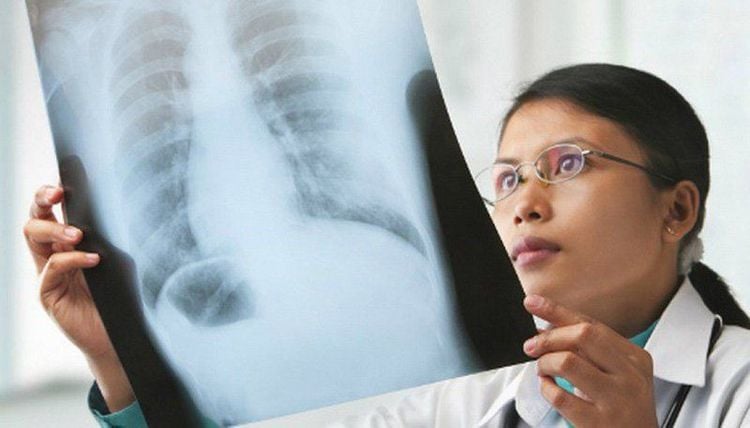
2. How is lung cancer treated?
Depending on the patient's condition, stage of the disease, location and nature of the cancer...the doctor will recommend an appropriate treatment regimen for lung cancer. There will be many different treatment methods such as: surgery, chemotherapy, radiation therapy, targeted therapy, immunotherapy or a combination of methods.2.1 Surgery
The doctor will operate to remove the tumor and nearby healthy tissue. Surgery is often used for early-stage cancers that have not spread far.2.2 Chemotherapy
Chemotherapy is the use of chemical drugs to kill cancer cells. Chemotherapy is often used by doctors to treat advanced stage lung cancer when surgery is no longer possible to reduce coughing, relieve pain or shortness of breath, and prolong survival. In some cases, chemotherapy is used as additional treatment after surgery to increase the possibility of cure.2.3 Radiation therapy
Radiation therapy is a method of using high-energy radiation to destroy cancer cells. It is possible to combine radiation therapy, chemotherapy and drugs to coordinate in cancer treatment.2.4 Targeted therapeutic drugs
Targeted drugs are usually biologics or small molecules that target specific points on cancer cells to stop them from growing. Common drugs like bevacizumab, erlotinib, osimertinib...Bevaccizumab (avastin) stop tumor growth by stopping the blood supply. Blood vessels will provide oxygen and nutrients, helping it to grow.
Erlotintib (tarceva) affects growing, dividing cancer cells. Used for new cancers, non-small cell cancers, with mutations in the EGFR gene.
2.5 Immunotherapy drugs
Immunotherapy drugs are often biologic drugs that restore the body's ability to recognize cancer by the immune cells. From there, the immune system will attack more effectively against the tumor and make the disease go into remission. Immunotherapy drugs may be used alone, or in combination with chemotherapy. Common medications include pembrolizumab, nivolumab, and durvalumab.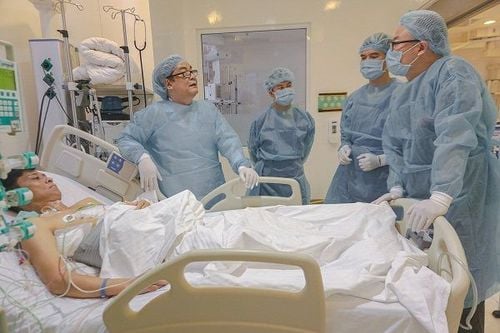
3. How to prevent lung cancer?
The earlier lung cancer is detected, the higher the cure rate. Let's reduce the risk of lung cancer by living a healthy, scientific life.3.1 Say no to tobacco
If you are smoking, say no to it. Stopping smoking significantly reduces the risk of lung cancer. Not only active smokers, but also passive smokers are at risk of lung cancer. So quitting smoking is the way to protect yourself and your loved ones.3.2. Check Radon . Content
Check the radon levels in the air in your home, workplace, especially places where high levels of radon are suspected. Make sure you and your family are not living in an environment with a high risk of lung cancer.3.3. Healthy diet
Full complement of green vegetables and fruits. Clean, chemical-free food sources. You can grow vegetables on your family balcony, which is both environmentally friendly and helps you have clean, chemical-free meals. It is better to provide natural vitamins than to provide vitamins in the form of pills.3.4 Limit alcohol consumption
Drink in moderation, know how to moderate your actions. Especially people over 65 years old, should not drink more than one drink a day.3.5 Increase exercise
Exercise will help us to have a better metabolism, blood circulation to the organs stronger. Helps increase anabolism, reduce catabolism. Very beneficial for disease prevention. You can participate in your favorite sports, or go for a 30-minute jog every morning to help you stay healthy.Currently at Vinmec International General Hospital, there is a lung cancer screening package, which helps you to detect the disease even when there are no symptoms. At Vinmec, you will work with a team of highly qualified, experienced domestic and international doctors. Fully equipped with the most modern machinery, combining the best comprehensive care and treatment for patients.
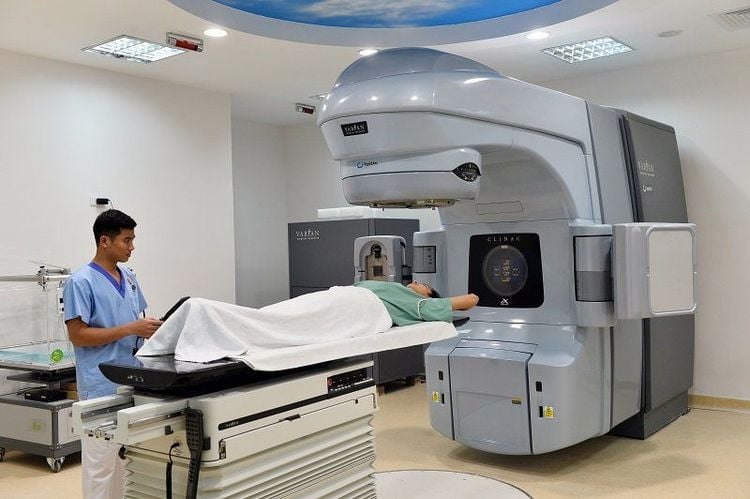
Please dial HOTLINE for more information or register for an appointment HERE. Download MyVinmec app to make appointments faster and to manage your bookings easily.





